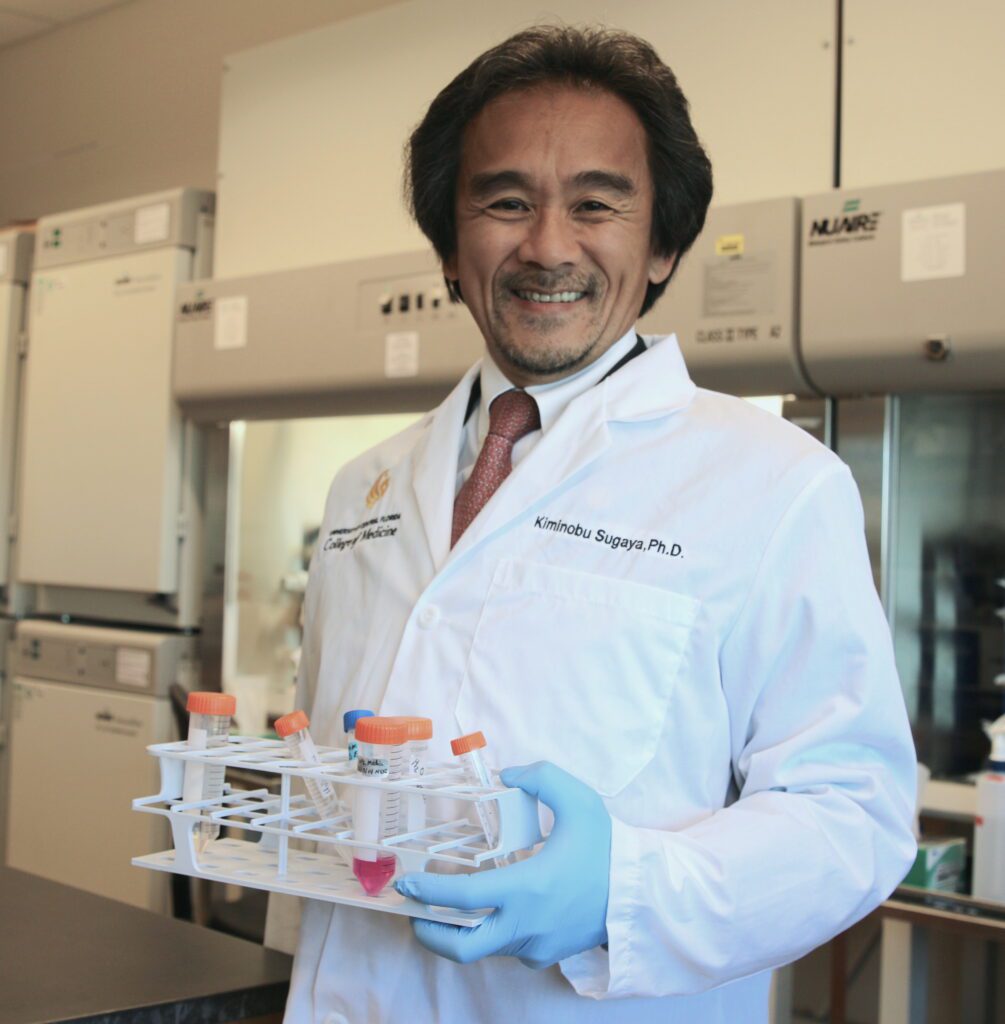
A new diagnostic technology using saliva, developed by a College of Medicine researcher, is helping one company create better treatments and diagnostics for autism spectrum disorder.
Dr. Kiminobu Sugaya, professor and head of neuroscience research at the Burnett School of Biomedical Sciences, is collaborating with Nova Mentis Life Science Corp. to develop the first system for measuring serotonin in saliva from patients with autism. Serotonin is a chemical released by the brain that acts as a mood stabilizer and helps regulate behavior, and scientists have linked autism with low serotonin levels. Dr. Sugaya said that by knowing a patient’s serotonin levels, healthcare providers will be able to better understand the patient’s condition and the efficacy of autism treatments.
Currently, the only way to determine serotonin levels in the brain is to collect fluid from the spinal cord or brain with a needle.
“The traditional method is a very invasive procedure,” Dr. Sugaya explained. “That’s not something you want to do every day, especially to kids. So, it would be good if we can easily and frequently assess their serotonin levels in the brain using a spit of saliva in a tube.”
Autism spectrum disorder constitutes a diverse group of conditions related to brain development and is characterized by difficulty with social interaction and communication. The World Health Organization estimates that about one in every 100 children worldwide has autism.

Through his partnership with NOVA, a Canadian-based biotechnology company, Dr. Sugaya developed a way to measure serotonin in vesicles – tiny, fluid-filled sacs produced in the brain that migrate through the body’s blood-brain barrier into saliva. The technology uses DNA-tagged antibodies and a polymerase chain reaction (PCR) to amplify the DNA, allowing scientists to detect even minute amounts of serotonin. Dr. Sugaya originally developed the technology for diagnosing Alzheimer’s disease by identifying a protein fragment called beta-amyloid, which is associated with the disease. He hopes to utilize saliva sample analysis for many other diseases.
NOVA aims to develop a genetic, neuroinflammatory, and serotonin data bank that will help establish a diagnostic index for autism and its major genetic subset, Fragile X syndrome (FXS), to develop more accurate methods of diagnosis and treatment.
Dr. Marvin S. Hausman, chairman of NOVA’s Scientific Advisory Board, said the ability to measure serotonin levels in patients’ saliva as a biomarker will potentially assist NOVA in predicting disease development and establishing specific treatable subsets of diseases that make up the autism spectrum.
“This scientific relationship with Dr. Sugaya and UCF will allow the development of a potential groundbreaking serotonin assay,” he said.
Dr. Sugaya agreed.
“Autistic patients face a range of communicative, social, and educational challenges that affect almost every aspect of their daily life,” he said. “Our hope is this technology, which allows us to have frequent tests, will help developing drugs effectively and also tailoring personalized medicine by, as one treatment will not work for everyone.”